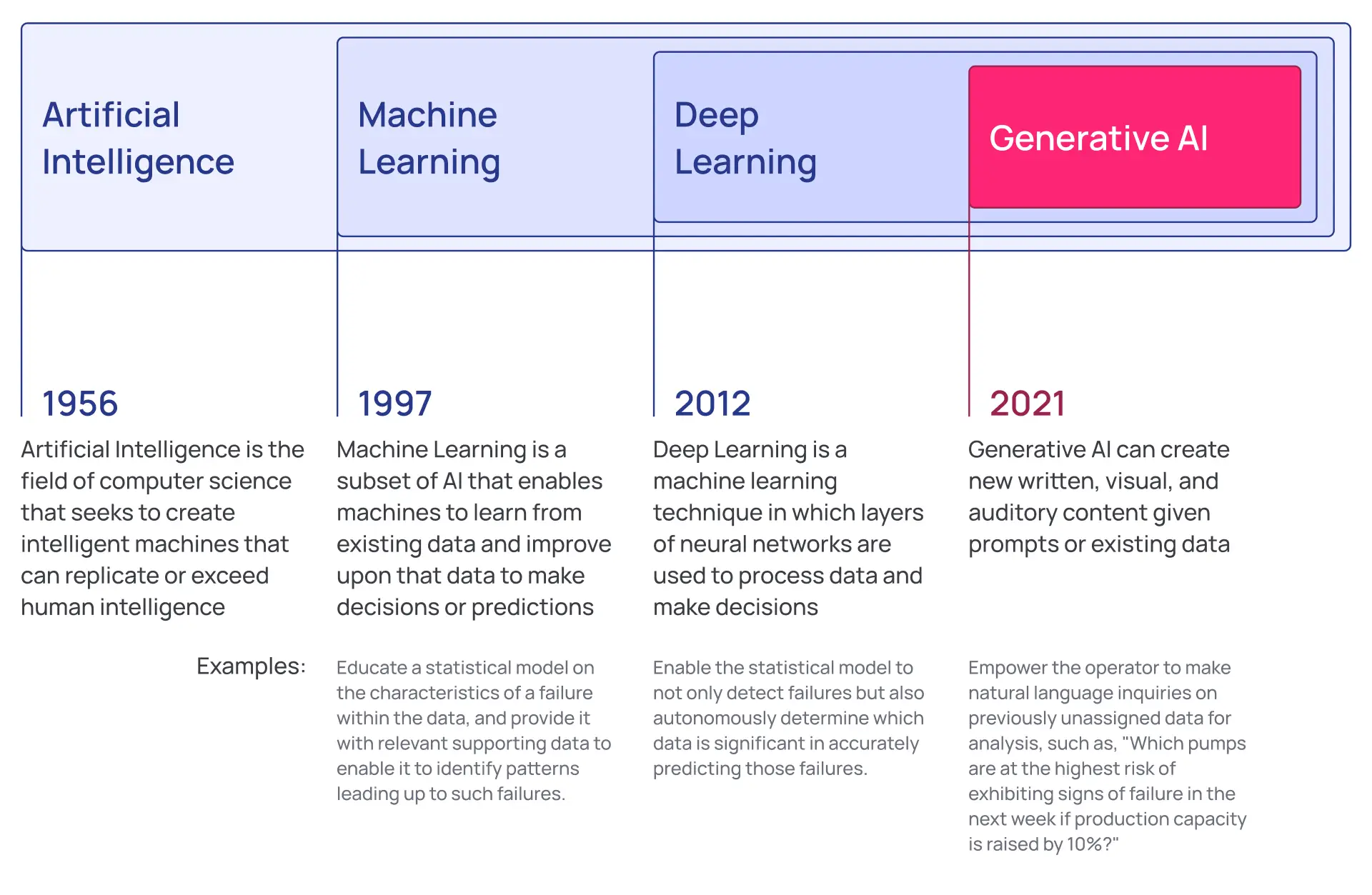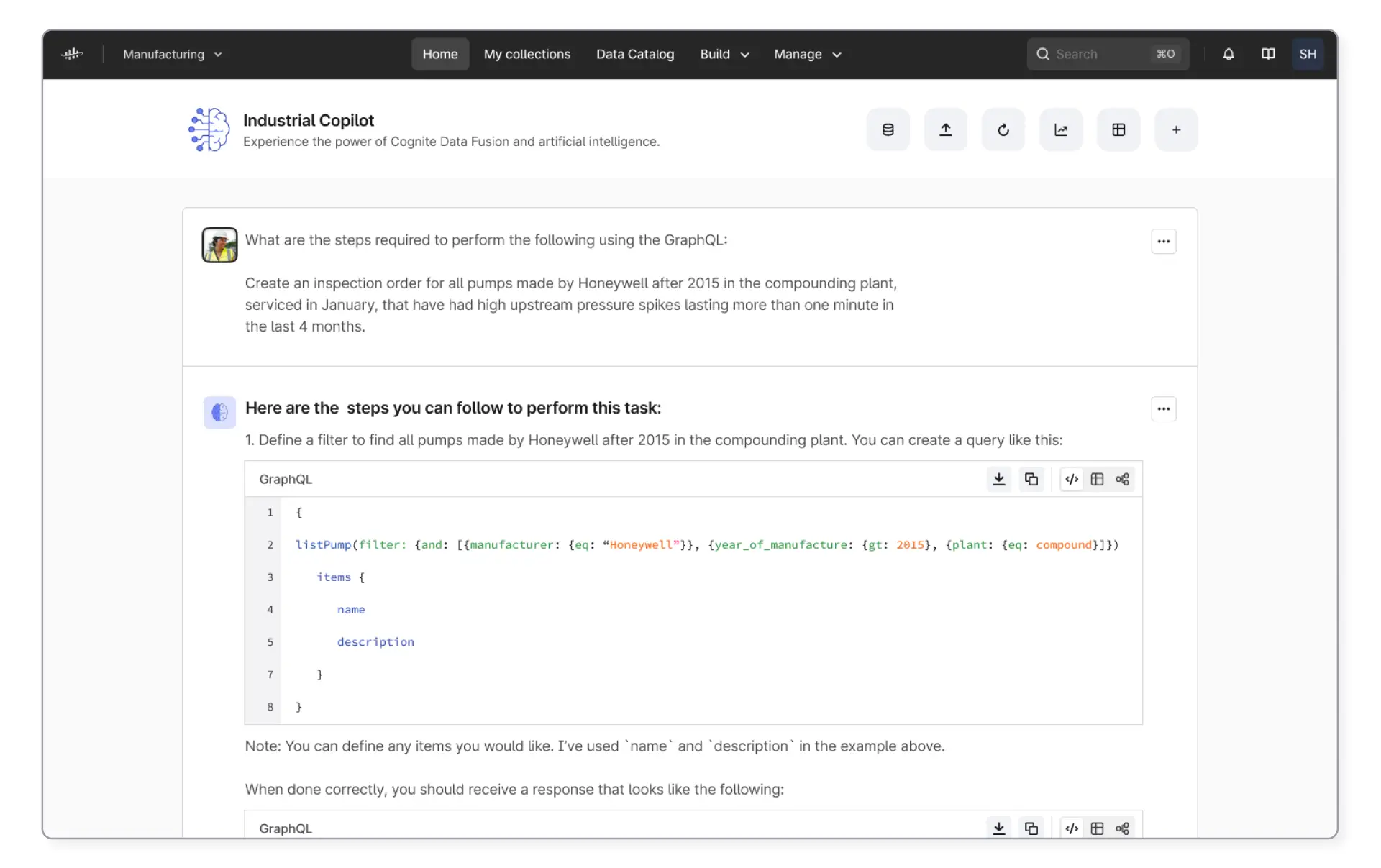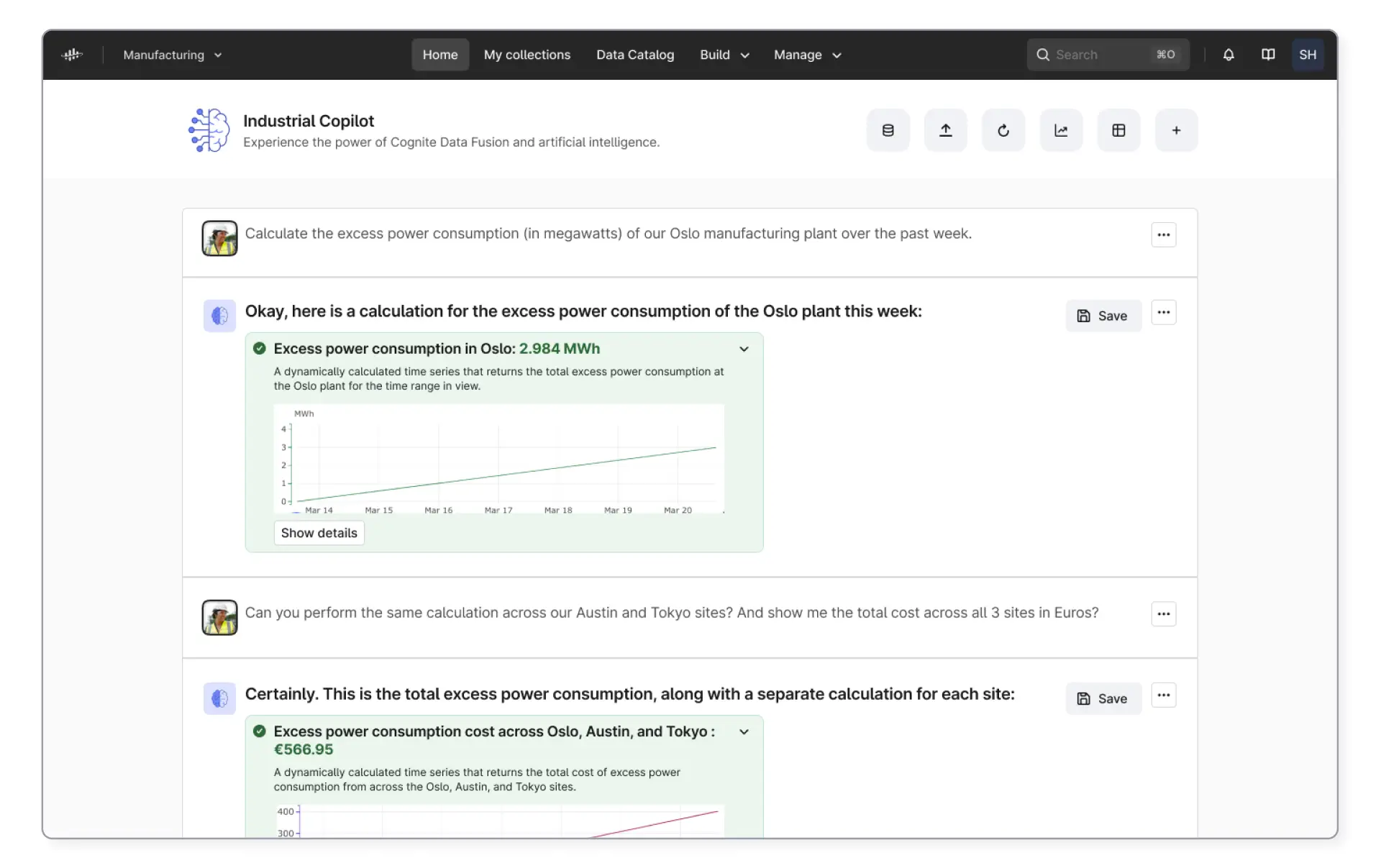ChatGPT implications for Asset Performance Management: An interview with Geir Engdahl, Cognite CTO
It’s no secret that industrial operations teams continue to struggle to adopt and scale digital solutions that truly transform day-to-day workflows. Whether the lack of momentum is a function of difficult change management, or is deeply rooted in the industrial data problem, one thing is certain: the chain of events from raw data to meaningful operational insight and action remains overly complex and too cumbersome to scale.
“Making the complicated simple, awesomely simple, that’s creativity.”
Charles Mingus, Jazz Pianist
Rapidly maturing generative AI technologies such as ChatGPT are poised to deliver a step change in the way that humans process complex information or situations. While subject matter experts and operators are getting used to new data infrastructure that helps them “google” complex industrial data, ChatGPT will further simplify the human-to-data interface: the dawn of Industrial CoPilots is upon us.

So what are the implications of this technology on legacy asset performance management (APM) processes and in live operational context? Is this the breakthrough industry needs in order to finally deliver “the iPhone moment?” We sat down with Cognite’s Chief Technology Officer, Geir Engdahl, to unpack this in more detail.
Q&A
Cognite Team: To set the ground, what is ChatGPT, GPT-3, GPT-4, and Generative AI?
Geir: ChatGPT is a conversational generative AI solution developed by OpenAI that uses a specially trained version of GPT (Generative Pre-trained Transformer), which itself is a type of foundation model. Foundation models, also known as large language models (LLMs), are a type of machine learning that uses very large pre-training sets to perform advanced language-related functions, including natural language content generation, summarization, code generation, and question answering. GPT-4 is the newest, most capable version of OpenAI's language model system.

Cognite Team: Is this AI 2.0 finally truly intelligent? Does it really 'understand' like we humans do?
Geir: Although ChatGPT outputs are unquestionably eloquent, the answer is no. The terms “understand” and “intelligent” are implicitly human terms, so at this level already, their application to any machine algorithm – like that of ChatGPT – is misleading. What happens in reality is that the model is repeatedly guessing the next word in a response based on a very large number of mathematical operations, resulting in a list of words and probabilities for each one. There is no true understanding of the subject like with us humans. Where this new AI is similar to us humans, is that the model output can also be wrong.
These incorrect outputs are referred to as hallucinations. In more plain terms, they are simply false answers. Coming back to eloquence, there is a danger that ChatGPT content that is factually incorrect may be assumed to be correct simply because it is presented very eloquently. Eloquence however does not equal truth.
Cognite Team: What human and knowledge worker implications are you most excited about regarding the promise of GPT?
Geir: Before the recent rise of ChatGPT and other AI-powered, chat-based tools – as far back as 5-10 years ago – there have been a number of exciting low-code and no-code platforms that made it easier for people who aren’t developers to create applications, dashboards, and more on their own.
It’s not about replacing the human workflow 100%, but rather making the 80% of the work that solves 80% of the most frequent and valuable challenges a whole lot simpler.
That’s what excites me about the promise of ChatGPT, or any of the new generative AI tools. With ChatGPT serving as the translator, people can do quite powerful work that would previously have been in the realm of developers, just by typing in their intent. A very good example is query and simple code generation. Making it much easier to answer questions about data, create calculations and models using data and to visualize data.
If we think about empowering a subject matter expert in asset-heavy industry with this sort of tooling, you start to believe that we could be – at long last – at the tipping point of superhuman augmentation. If we give the people with decades of domain expertise and real-world equipment knowledge the ability to self-service and perform orders of magnitude more efficiently? That could very well be the inflection point of a new industrial revolution…
Cognite Team: Asset Performance Management (APM) encompasses 100’s of use cases across maintenance, production optimization, ESG, and field worker enablement. What should we expect from ChatGPT in this domain?
Geir: Asset Performance Management (APM) is nothing new to industrial organizations. However, historically, most APM solutions have been trying to do too much, are too complex, or ultimately too niche to provide the expected return on investment. Ultimately, these solutions are too cumbersome to use – especially for the new generation of graduates entering the industrial workforce who come with very different user experience expectations than those closer to retirement age.
The APM space is long overdue due for its “iPhone” moment”: Making the complex simple for the masses. While a Nokia smartphone was fully loaded with technology, you’d need to read the 500 page manual to properly use it. The iPhone on the other hand had the same technology, or less in fact, but a five year old child is capable of using it. No manual required.
With the rise of ChatGPT, we should expect to see a similar simplification of all the knowledge tasks that occur across asset performance management workflows. ChatGPT can fundamentally help abstract away some of the complexity required to write an evolved query for information, understand similar root causes, or become familiar with a new process.
Cognite Team: There’s been lots of hype about previous generations of AI for operations. Are we again experiencing the “hype” of something that's not immediately helpful (e.g. Industrial Metaverse), or does ChatGPT/GPT-4 have the ability to drive real impact now?
Geir: While the onset of AI may seem and feel like an overnight shift, this is actually a change that has been in process for years. With all of the available low-code/no-code platforms and chatbot user interfaces, we still haven’t cracked the required simplicity in an environment of excessive complexity.
The difference now is that we’ve seen some truly viable solutions that are ready for use – both for private people to use on an infinite number of day-to-day tasks or queries (ChatGPT), and as a functionality developers and product companies can leverage (GPT-4, Codex, and DALL-E) to offer richer, generative AI-powered experiences in their already valuable applications.
The very real “hype” and intrigue of OpenAI’s products is, with relatively little effort, any company can augment product experiences, APIs, SDKs, and more with an AI-powered experience. This “Copilot” can perform tasks, assist users with, or even help people without a coding background to program like a pro.

Remember, Google Search was not the first mover in internet search, and the iPhone wasn’t the first touch-screen smartphone on the market. However, both at the time and in retrospect, these technological innovations seemed to trigger overnight transformations. ChatGPT and the other OpenAI products aren’t the first AI-powered products, but they’re certainly making an impact in the market in terms of viability and ease of use.
Cognite Team: Cognite is known for its focus on Simple Access To Complex Industrial Data — is there an entirely new level of the art of the possible in data experiences with ChatGPT and GPT-4?
Geir: Cognite's story has always been about industrial data liberation: liberating data from source systems, contextualizing it, and providing simple access to complex industrial data. However, once this is all done, the question is, what can we do with this data? How might we make data do more?
Transitioning to a safer and more efficient industrial future depends on democratizing innovation and facilitating collaboration. Something I’ve observed time and again in the world of industry is that most subject matter experts know exactly what they want to do, but lack the coding (Python), data, or software know-how to get it done.
That is where the concept of industrial data science liberation comes in. It is about giving anyone the ability to perform industrial data science without necessarily knowing how to code. And for experienced coders, it means they can do more with their time and skills, applying their expertise where it matters the most.

GPT-4 provides the opportunity to offer data science liberation within any product experience. It has the potential to create calculations, build dashboards, and more. But most importantly, GPT-4 can provide the means to help subject matter experts learn how and why to build a particular industrial solution. Simultaneously allowing humans to acquire, liberate, and codify domain knowledge through an easily accessible and user friendly interface.
These are the kinds of product experiences that are getting us Cogniters excited for the times ahead.
Contact us to be to first to hear about ChatGPT and GPT-4 application to true next-generation Asset Performance Management and Industrial DataOps.

